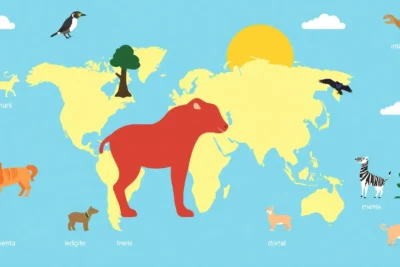
The Paradox of the Everlasting Library
hace 1 año · Actualizado hace 1 año
Este test de nivel C2 está diseñado para estudiantes que buscan perfeccionar su comprensión lectora a través de una narrativa envolvente y desafiante. Consta de 25 preguntas que pondrán a prueba tu habilidad para interpretar ideas complejas, analizar a fondo personajes y captar matices esenciales en el texto.
Acceder a más Test de Inglés Gratuitos
Historia
In the quiet town of Greystone, nestled between ancient woods and rolling hills, stood the Everlasting Library—a place of whispered legends and unspoken rules. The library was said to house every book ever written, as well as those yet to be imagined. Its shelves stretched infinitely, disappearing into a horizon of knowledge.
Dr. Emilia Verne, a historian specializing in literary mythologies, had heard of the library’s existence only in cryptic references and obscure texts. When an anonymous benefactor invited her to visit, she was both skeptical and intrigued. She arrived at the library on a misty morning, her heart racing with anticipation.
The entrance was unassuming—a wooden door set into a stone facade. Above it, an inscription read, “What you seek, you find. What you find, you keep.”
Inside, Emilia was greeted by a librarian named Arman, a tall, austere man with eyes that seemed to hold centuries of knowledge. “Welcome to the Everlasting Library,” he said. “Here, the written word lives eternally.”
Emilia was captivated by the sheer scale of the library. Each corridor branched into countless others, their shelves filled with books of every size, shape, and language. Yet, as she wandered, she noticed an unsettling pattern: some books seemed to glow faintly, while others were shrouded in shadow.
“What determines the state of these books?” she asked Arman.
“The glowing books are truths,” he explained. “The shadowed ones are fictions. But beware—the distinction is not always clear.”
Eager to explore, Emilia selected a book from a glowing shelf. Its pages described events from her own life, written with startling accuracy. “How is this possible?” she demanded.
“The library is more than a repository,” Arman replied. “It reflects the seeker’s soul. Each book you choose reveals a piece of your truth or your imagination.”
As the days passed, Emilia immersed herself in the library’s depths, uncovering texts that challenged her understanding of reality. One book described a version of history where a single decision altered the fate of civilizations. Another chronicled futures that branched infinitely, each shaped by minute actions.
But the most confounding discovery came when she stumbled upon a book bearing her name. Its cover was blank, its pages empty. “Why is this here?” she asked Arman.
“That is your unwritten story,” he said. “It is yours to fill, but once written, it cannot be undone.”
The idea both thrilled and terrified Emilia. The library, she realized, was not just a place of knowledge but a crucible of choice. Each book represented a possibility, and the act of reading shaped its meaning.
One evening, she ventured into the restricted section, a labyrinth of shadowed shelves. Here, the books whispered as if alive, their voices a chorus of warnings and secrets. Emilia selected a small, leather-bound volume that glowed faintly, its title reading, “The Paradox of the Seeker.”
The book described the library itself—its origins, its purpose, and its ultimate truth. It claimed the library was a living entity, sustained by the seekers who entered its halls. Each book was a fragment of their consciousness, woven into the fabric of the library. To leave the library, the book warned, one must surrender something of great value.
Emilia confronted Arman with the revelation. “Is this true? Are we trapped here?”
Arman’s expression was unreadable. “The library does not trap,” he said. “It offers. What you take, you must balance. What you learn, you must bear.”
Torn between her thirst for knowledge and her desire for freedom, Emilia faced a choice. She could continue exploring the library, unraveling its mysteries, or she could leave, taking only the lessons she had learned.
In the end, she chose to write her story. Sitting at a desk in a quiet alcove, she filled the pages of her unwritten book, each word a reflection of her journey. When she finished, the library around her began to fade, its infinite corridors dissolving into light.
Emilia found herself standing outside the wooden door, the book in her hands. She opened it to find its pages blank once more, save for a single sentence: “The seeker becomes the guide.”
Years later, Emilia shared her experiences in a memoir, inspiring a generation of scholars to seek the Everlasting Library. Yet she never returned, knowing that its mysteries were not meant to be solved but lived.
The Paradox of the Everlasting Library became a metaphor for the human condition—a reminder that knowledge is both a gift and a responsibility, and that the stories we choose to write define who we are.
Preguntas
Si quieres conocer otros artículos parecidos a The Paradox of the Everlasting Library puedes visitar todos nuestros artículos de C2.
Deja una respuesta


Artículos que te pueden interesar